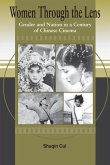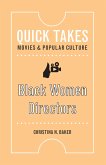"Reproducing Europe argues that current European films focus on female characters in order to negotiate the transformations of labor of the last decades. Based on an analysis of approximately two hundred European films made since 2000 that focus on the relationship of women to their work, the book analyzes a cross-section of national cinemas and film genres, clustered according to pertinent topics in the theories of gendered labor. As reproductive labor now also includes the "donation" of eggs and organs, and the possibility of outsourcing pregnancy, dystopian narratives tell stories of refugees and clones who become the raw materials for organ harvesting. Farces and comedies exaggerate the habits of the global managerial class, while social realist dramas capture precarious working conditions in narratives about unemployed women. And films from countries affected by the global financial crisis (Greece, Spain, Portugal) emphasize the patriarchal family, a debt economy, and unemployment. Proposing the relevance of key concepts developed in second-wave feminist theory, the book updates categories of reproductive labor and the sexual contract. The postindustrial, neoliberal, and transnational character of Europe, with its decline of heavy industry, rise of service work, increase in migration since the expansion of the EU, and innovation in biotechnology has changed the organization of work. Films respond to these developments with a narrative emphasis on work, embodied by female characters more than ever before"--
Hinweis: Dieser Artikel kann nur an eine deutsche Lieferadresse ausgeliefert werden.
Hinweis: Dieser Artikel kann nur an eine deutsche Lieferadresse ausgeliefert werden.








